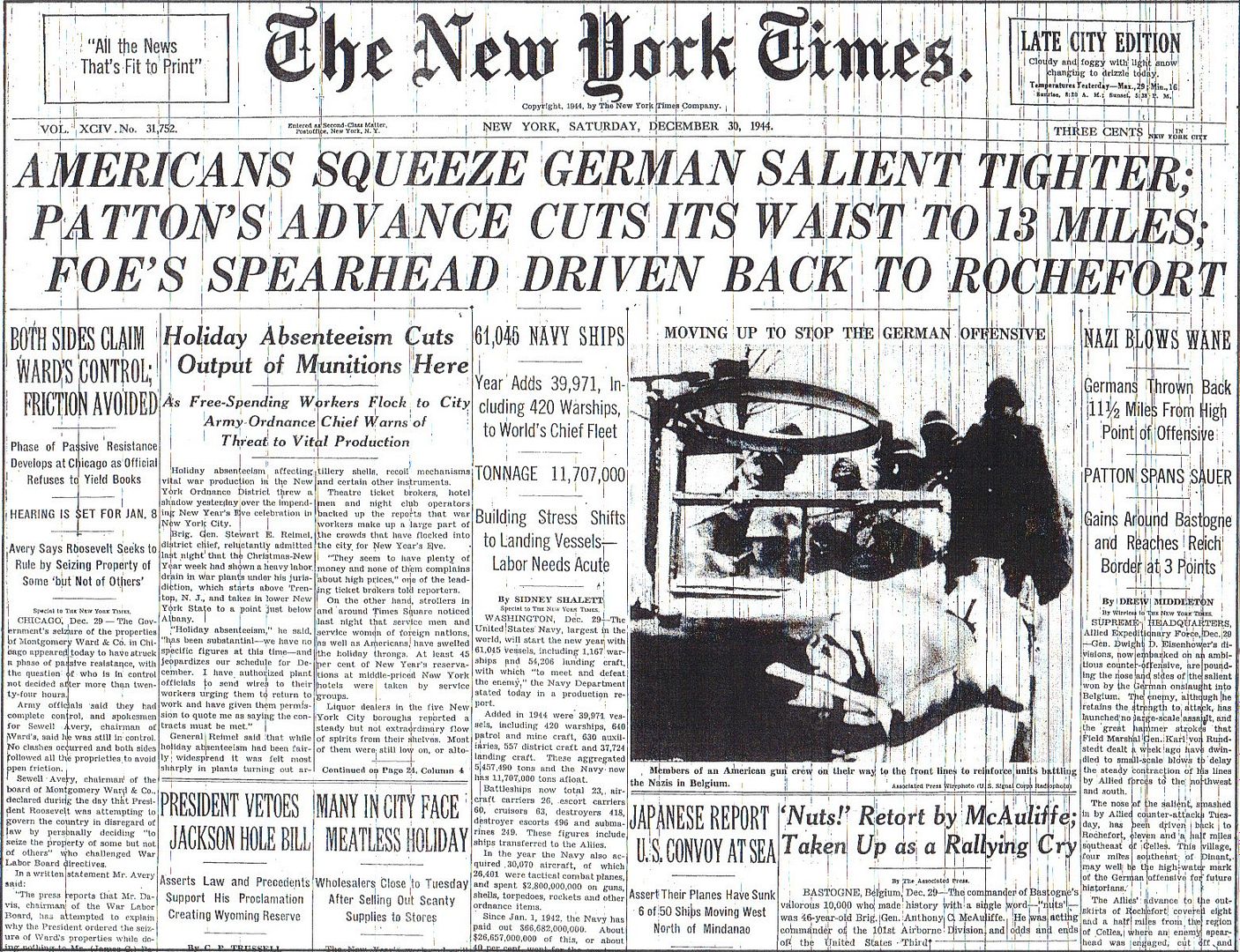
Posted on 12/30/2014 4:19:43 AM PST by Homer_J_Simpson

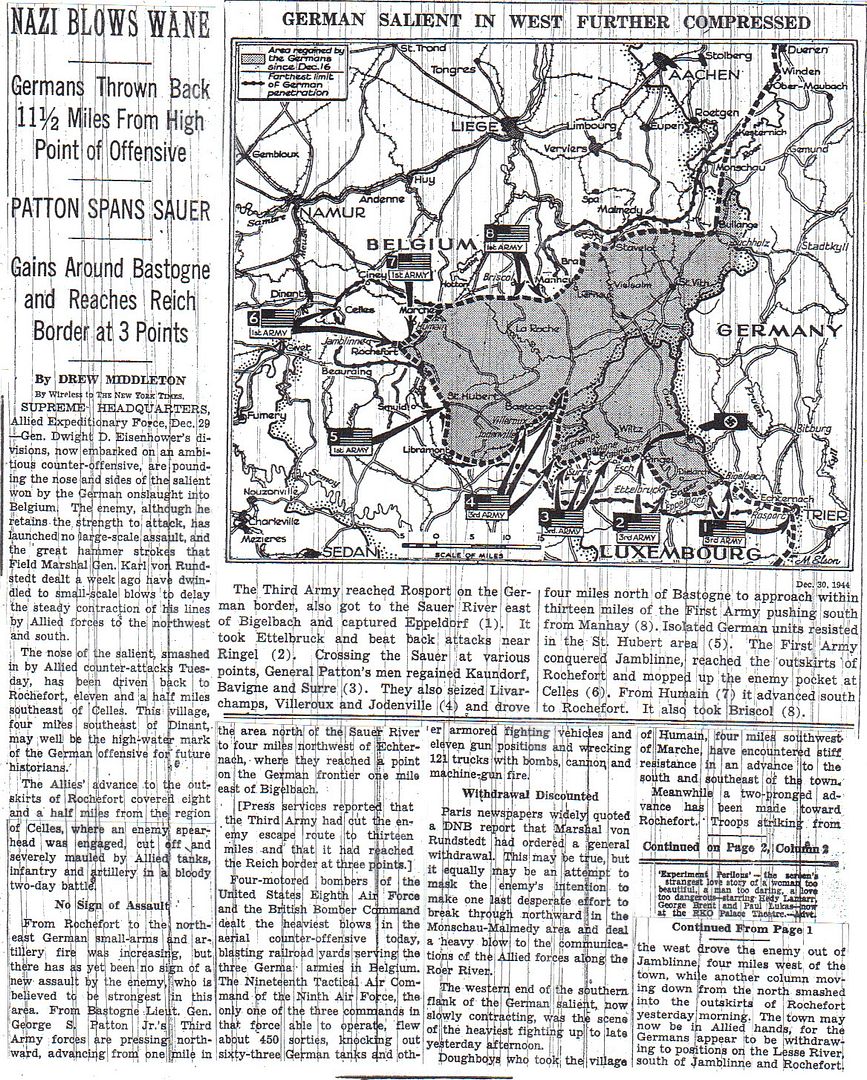
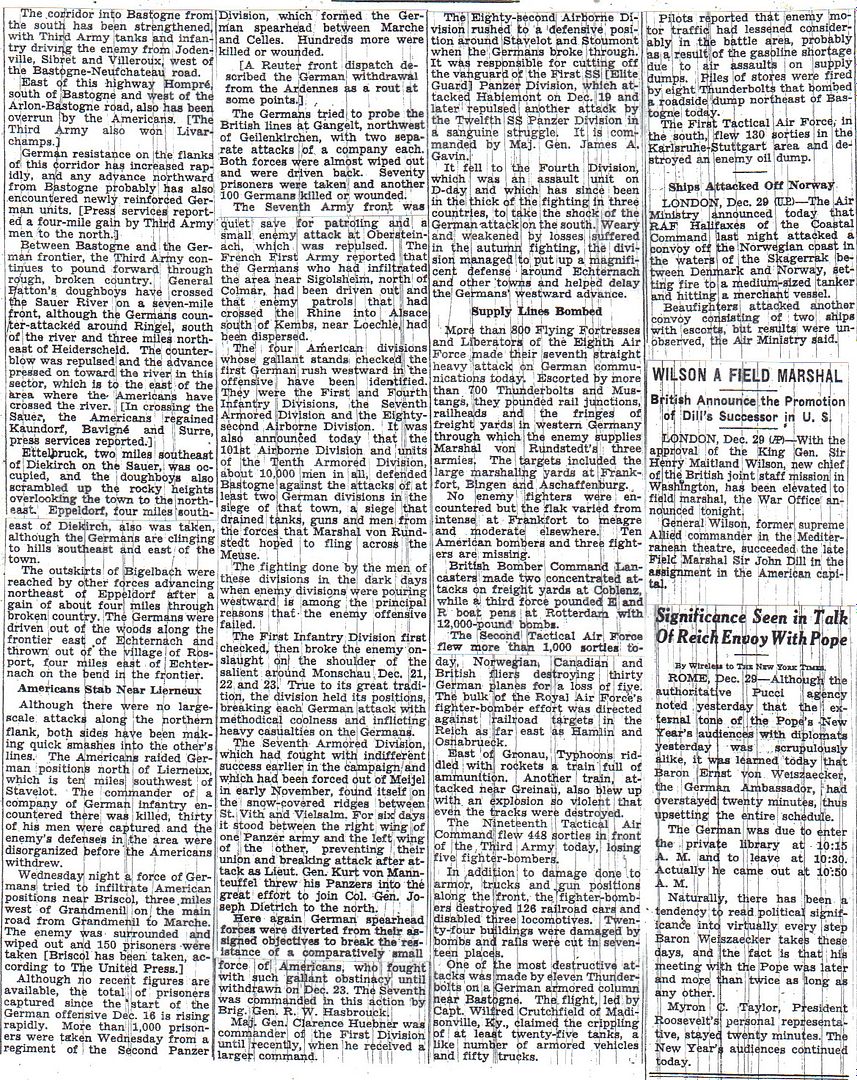
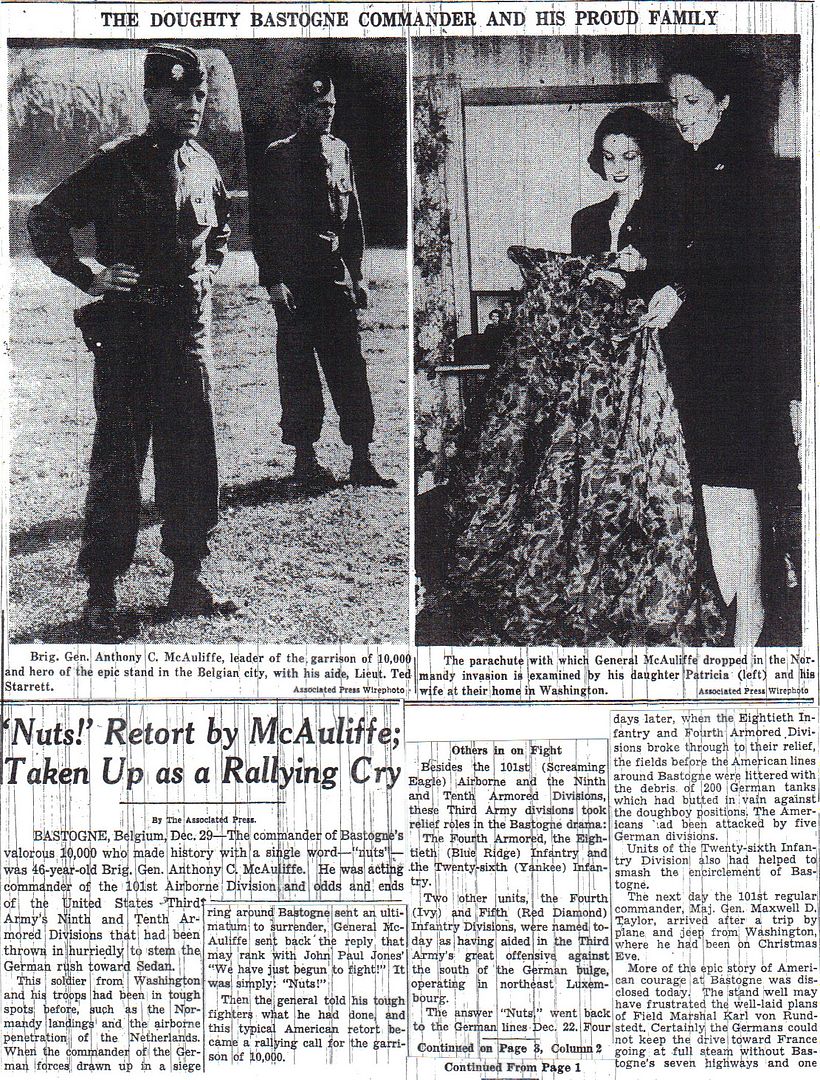
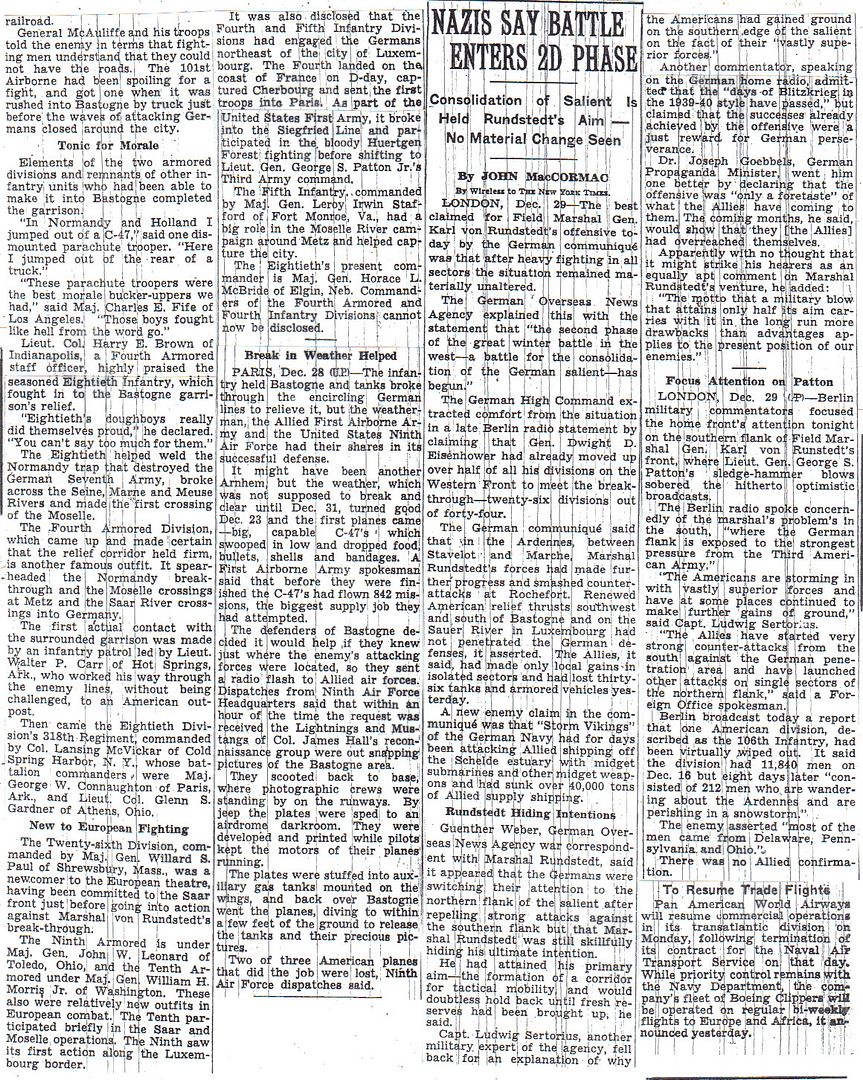
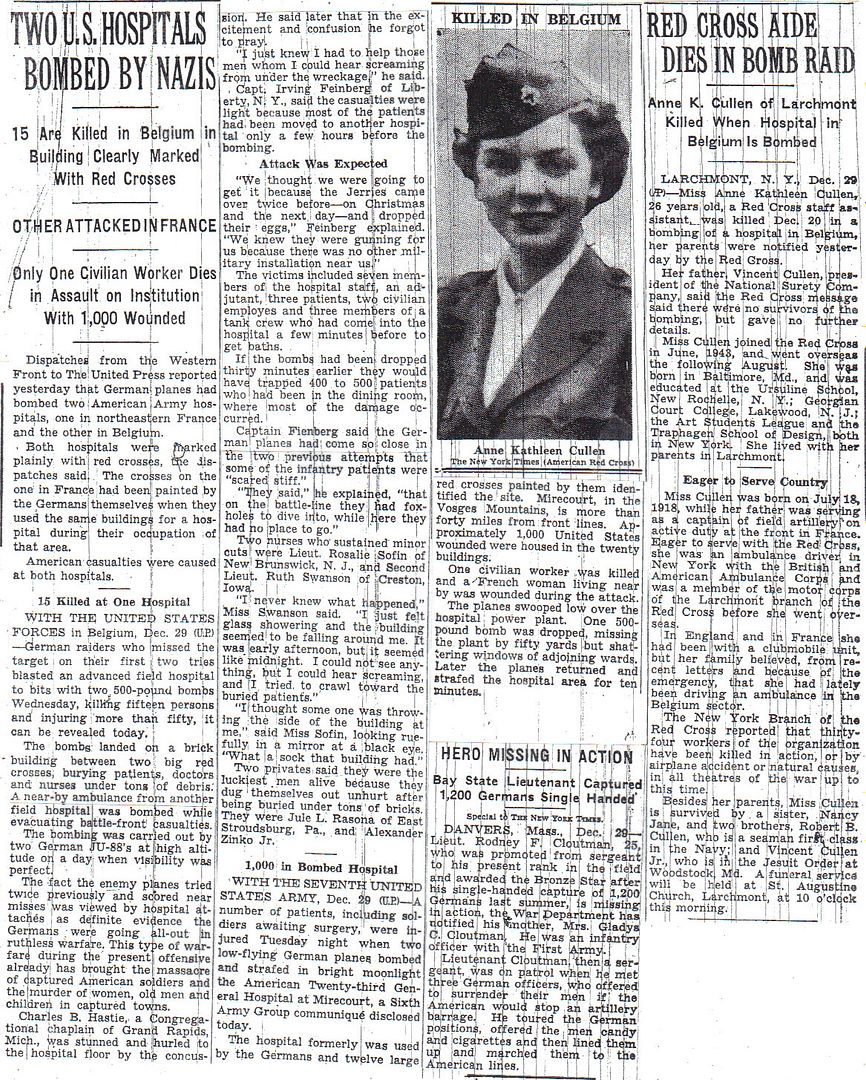
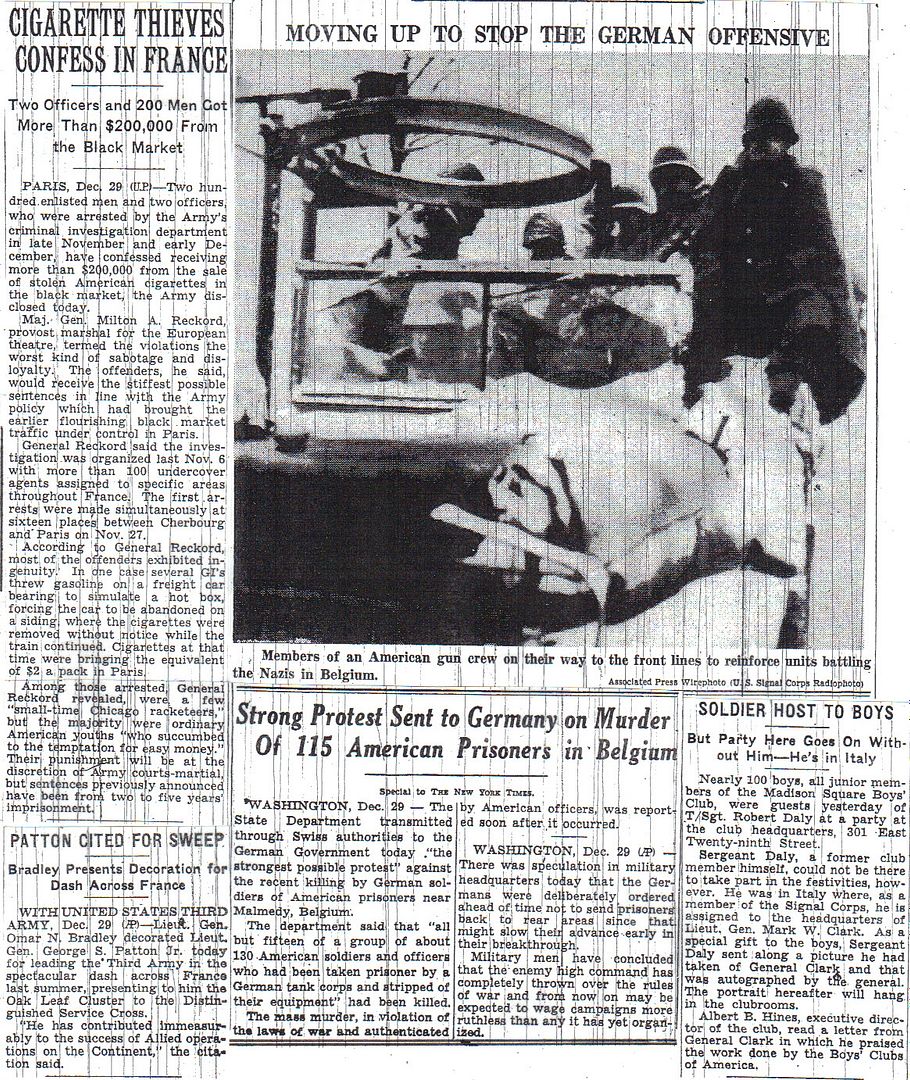
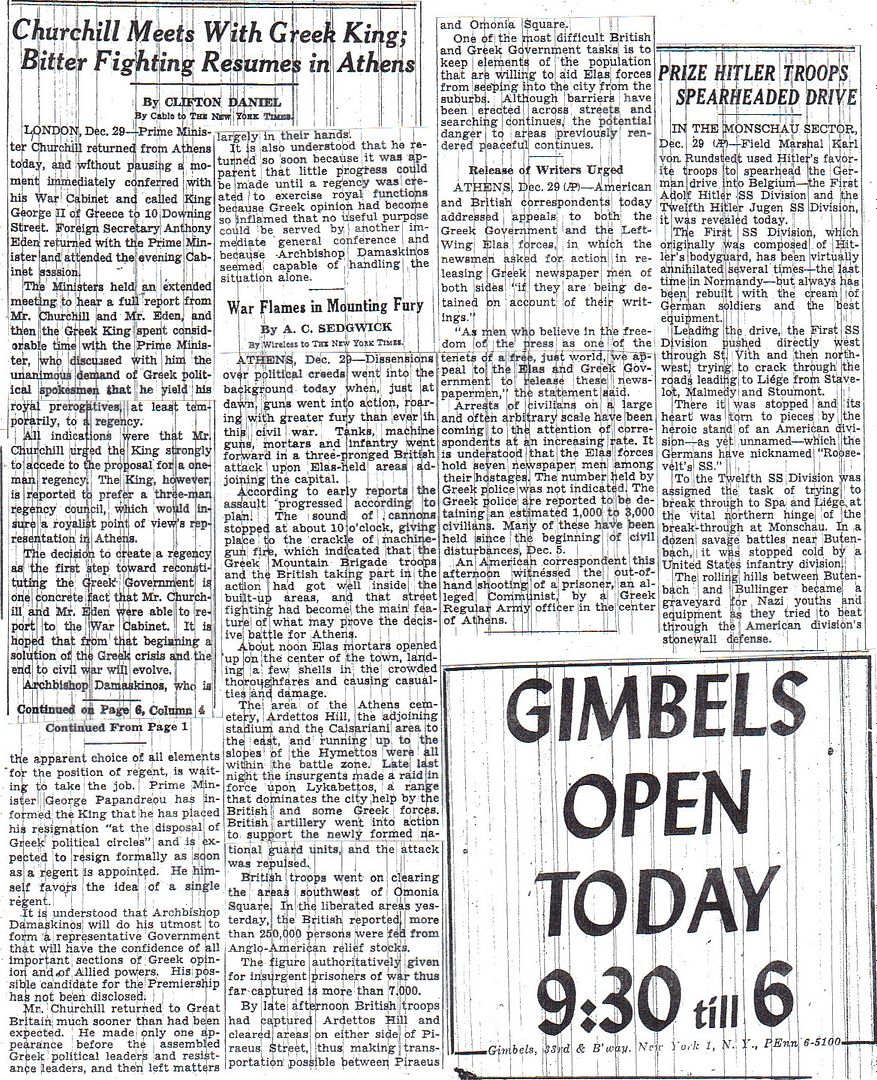
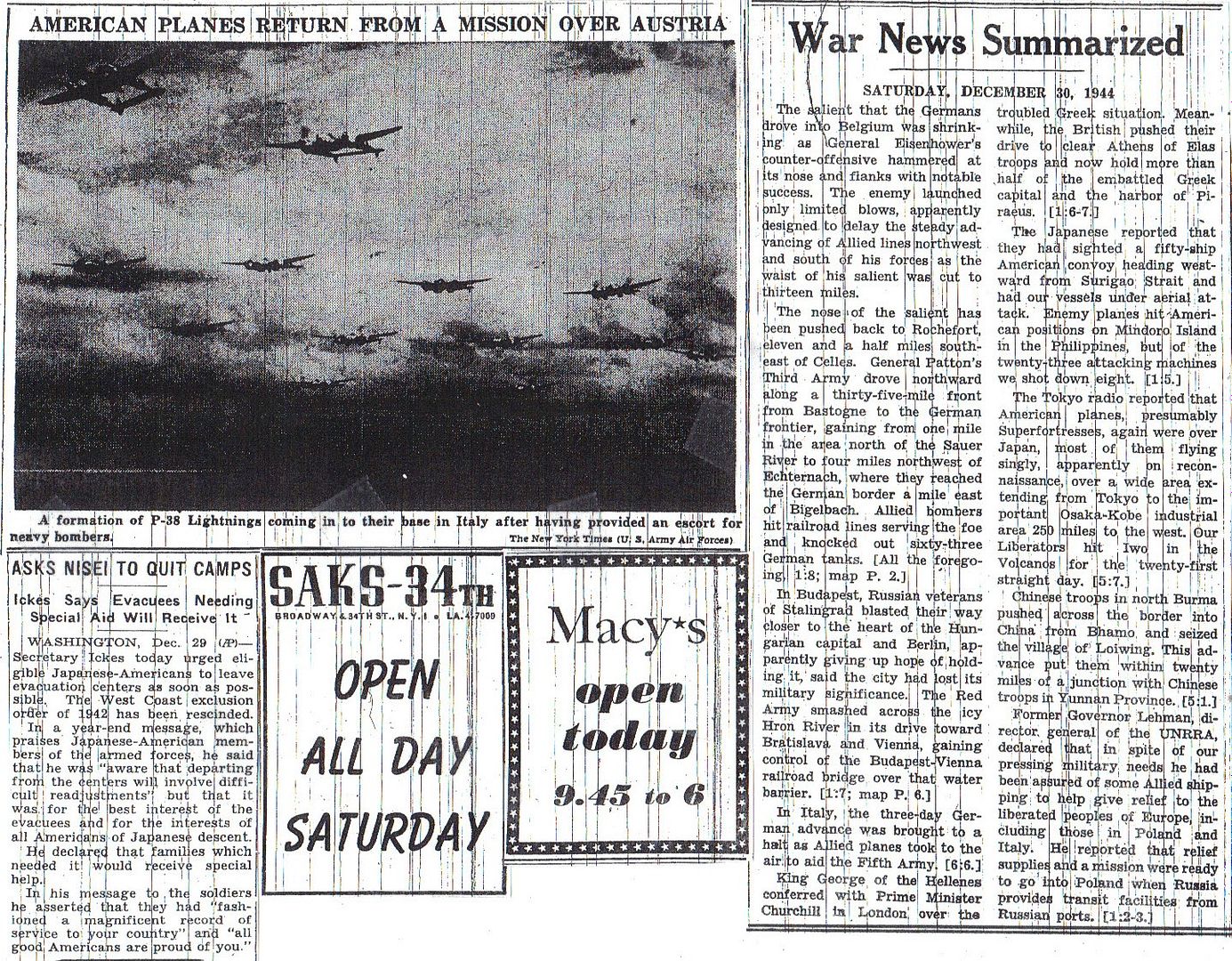
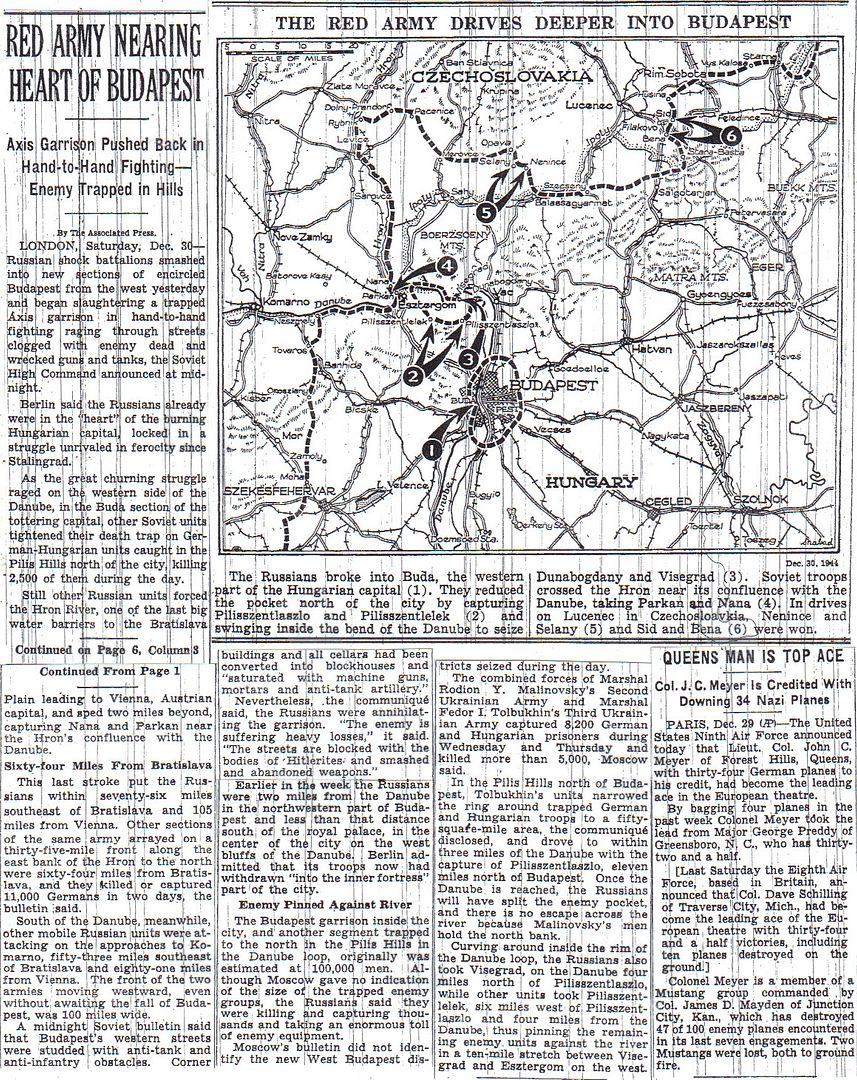
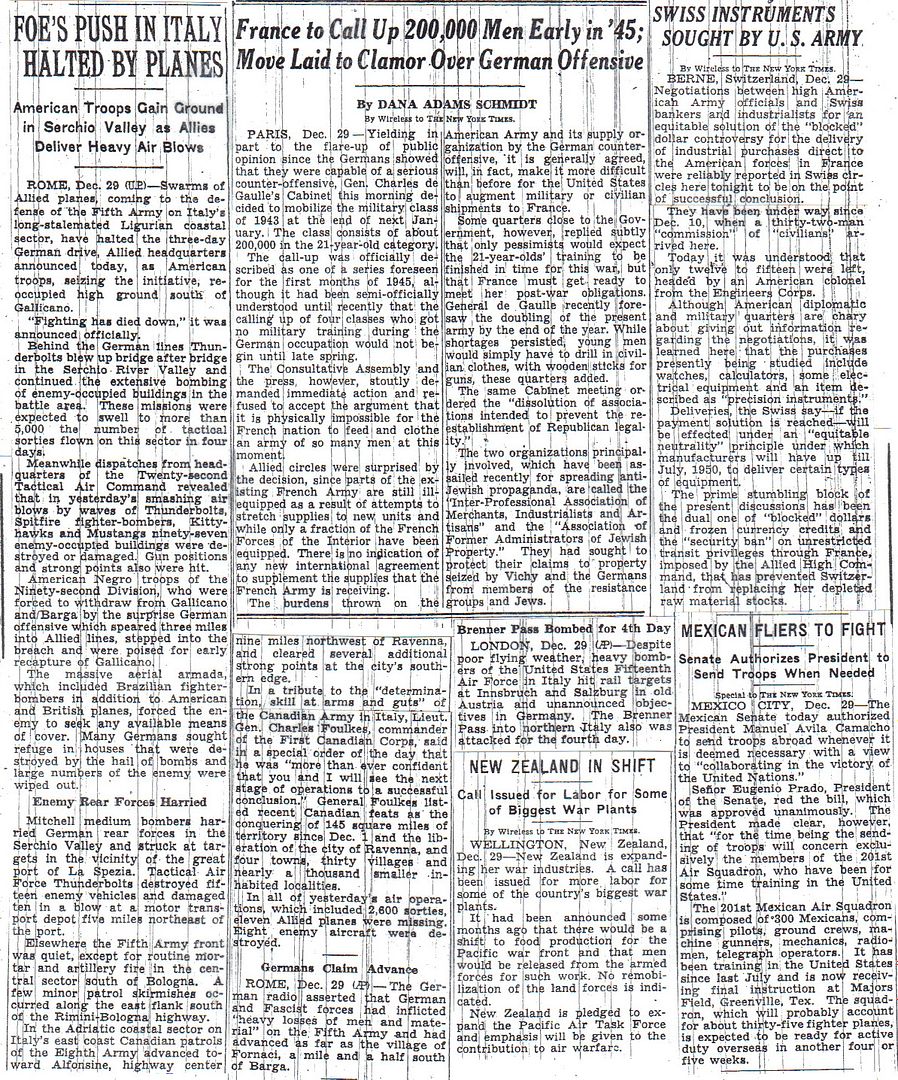
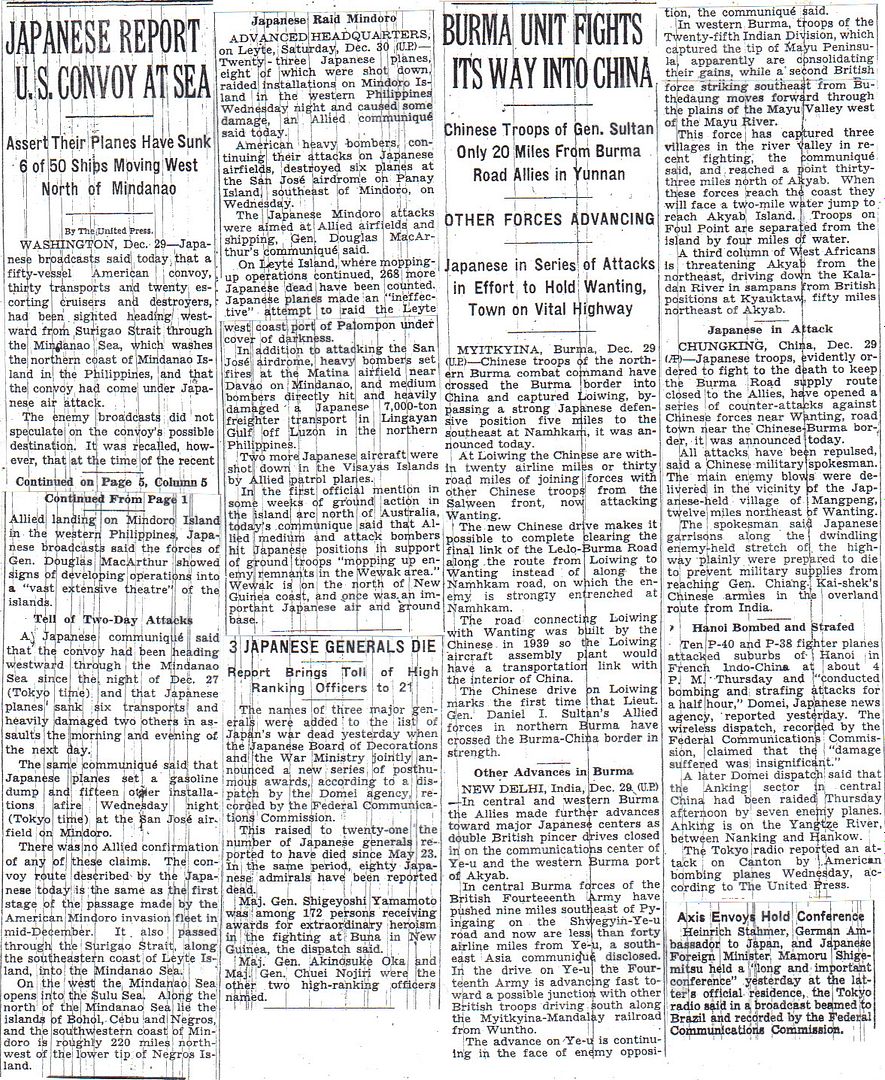
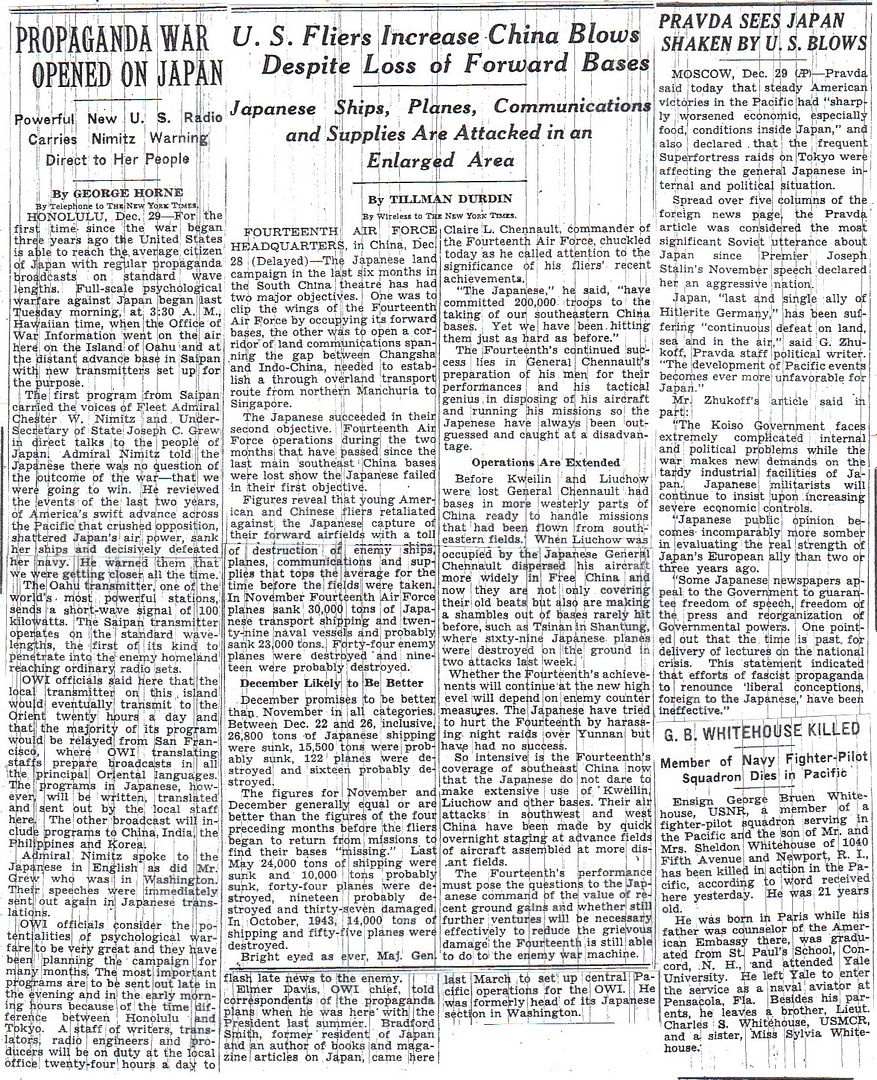
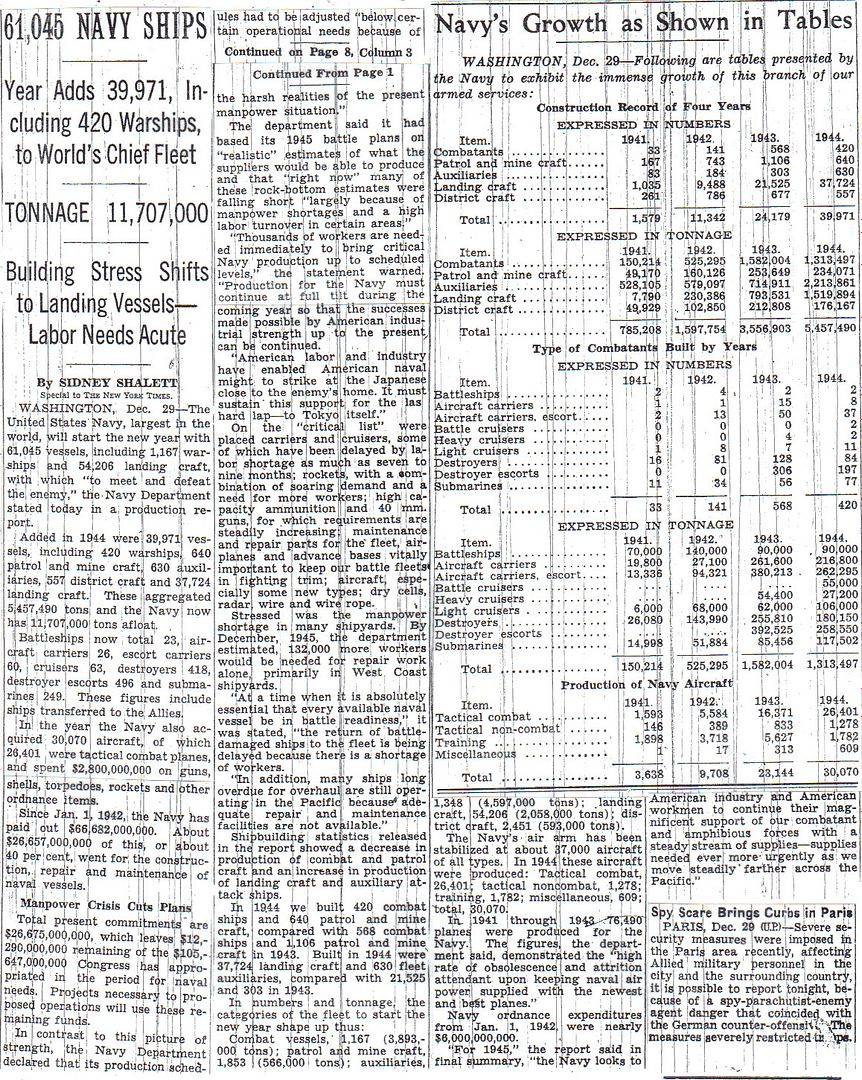
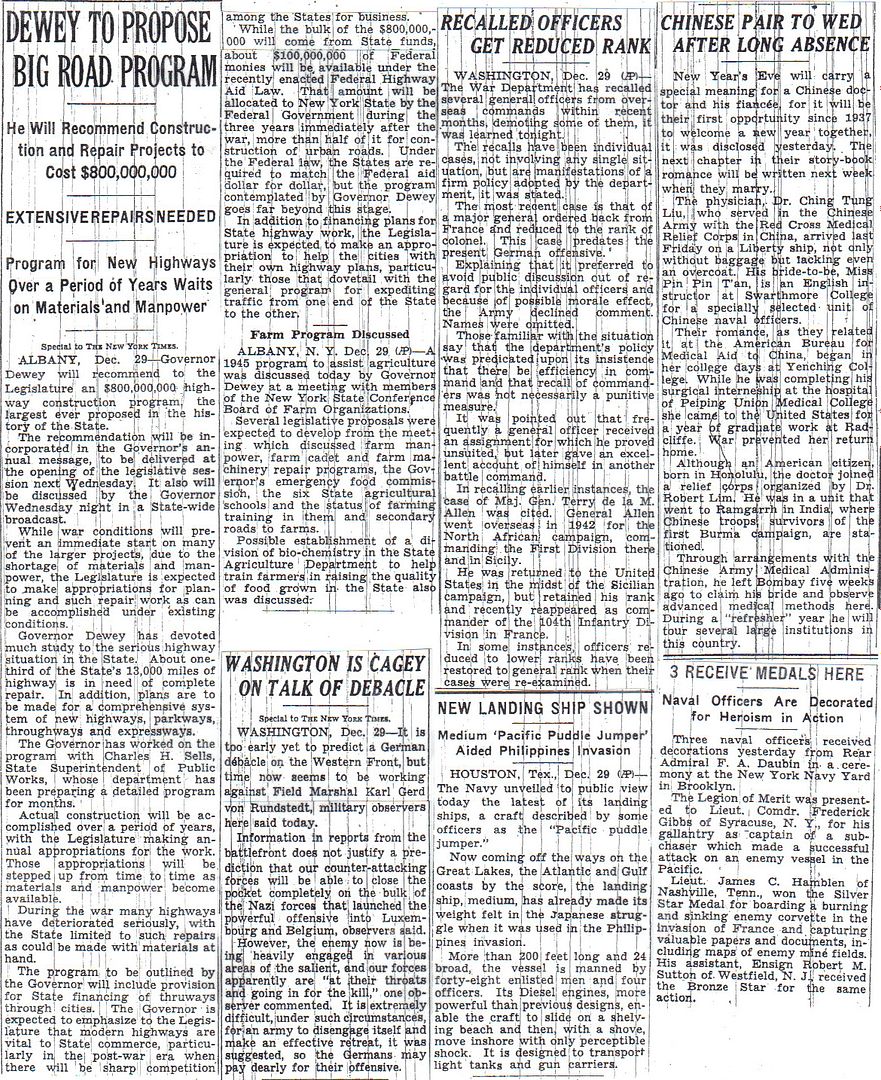
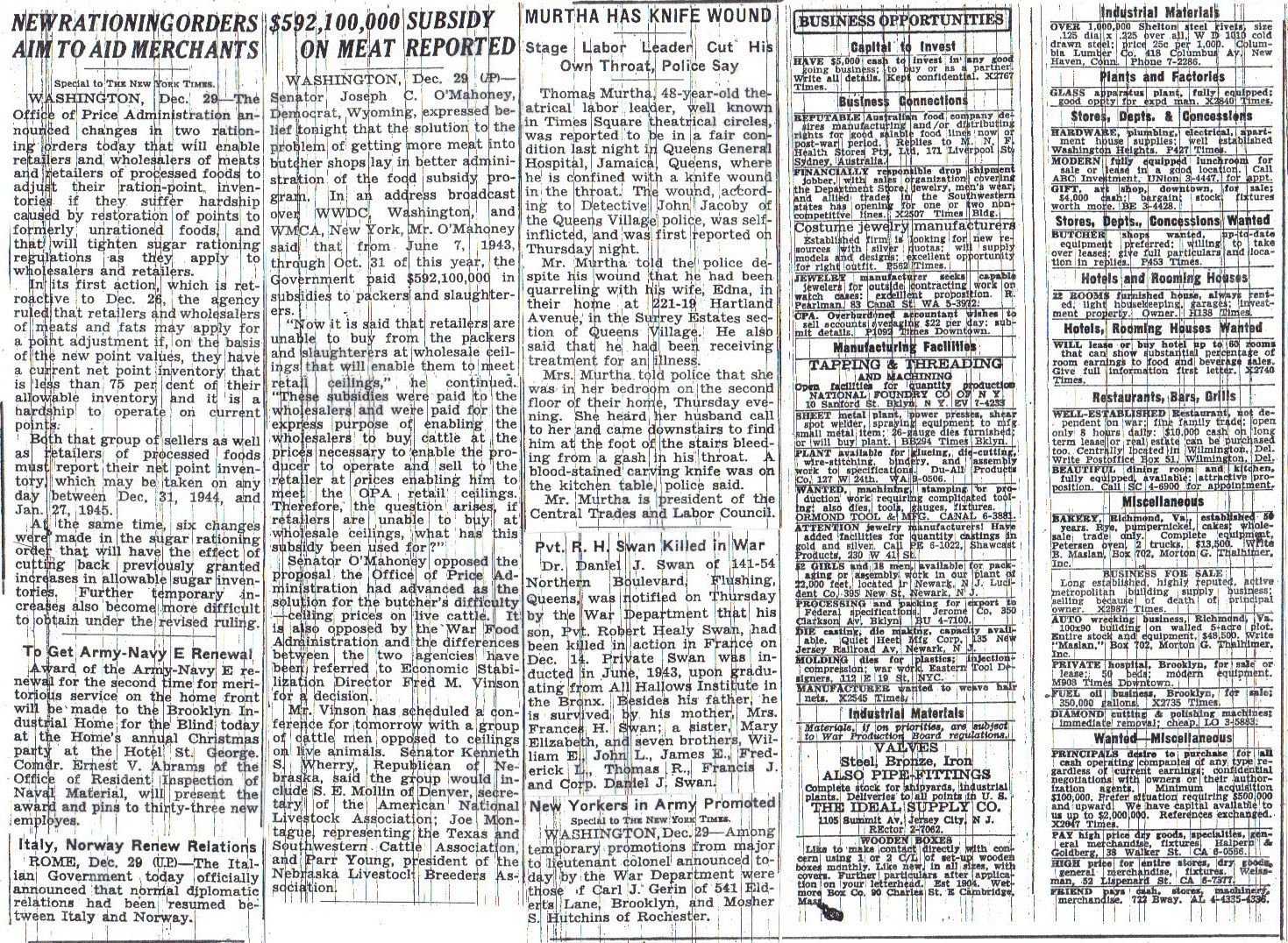
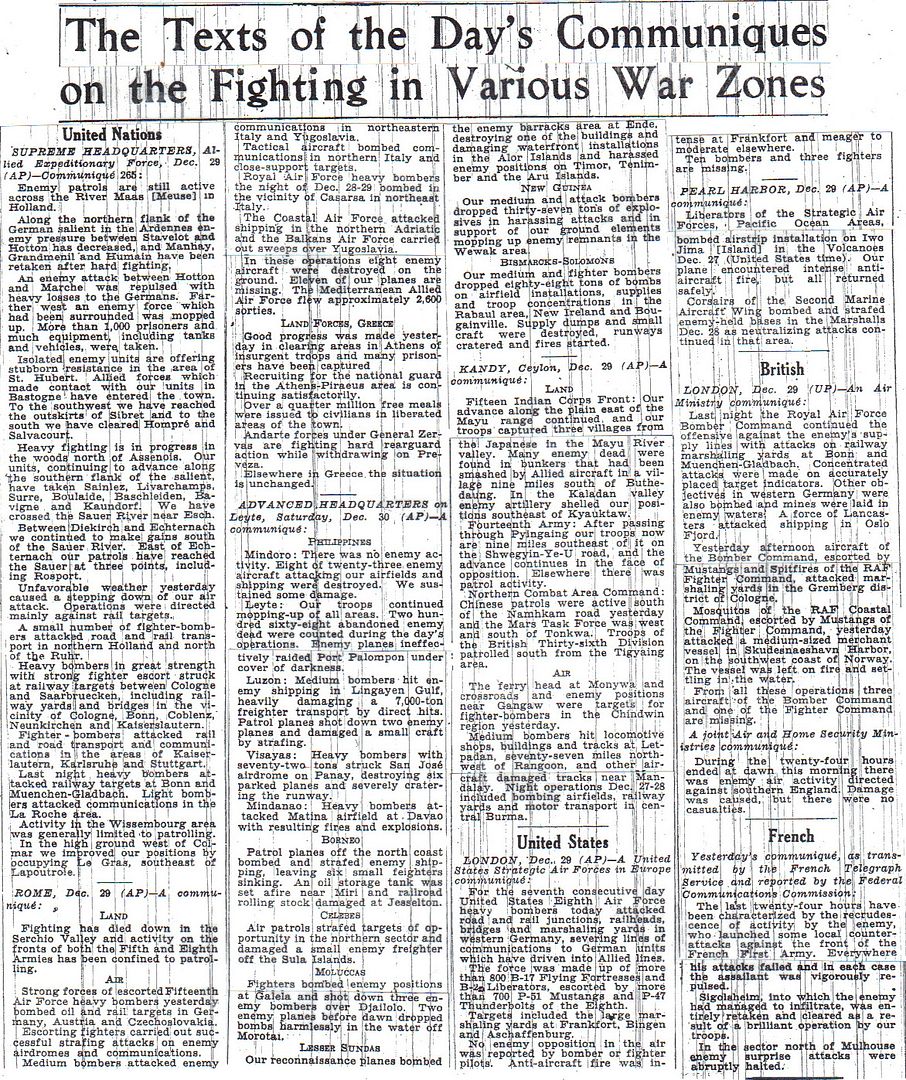
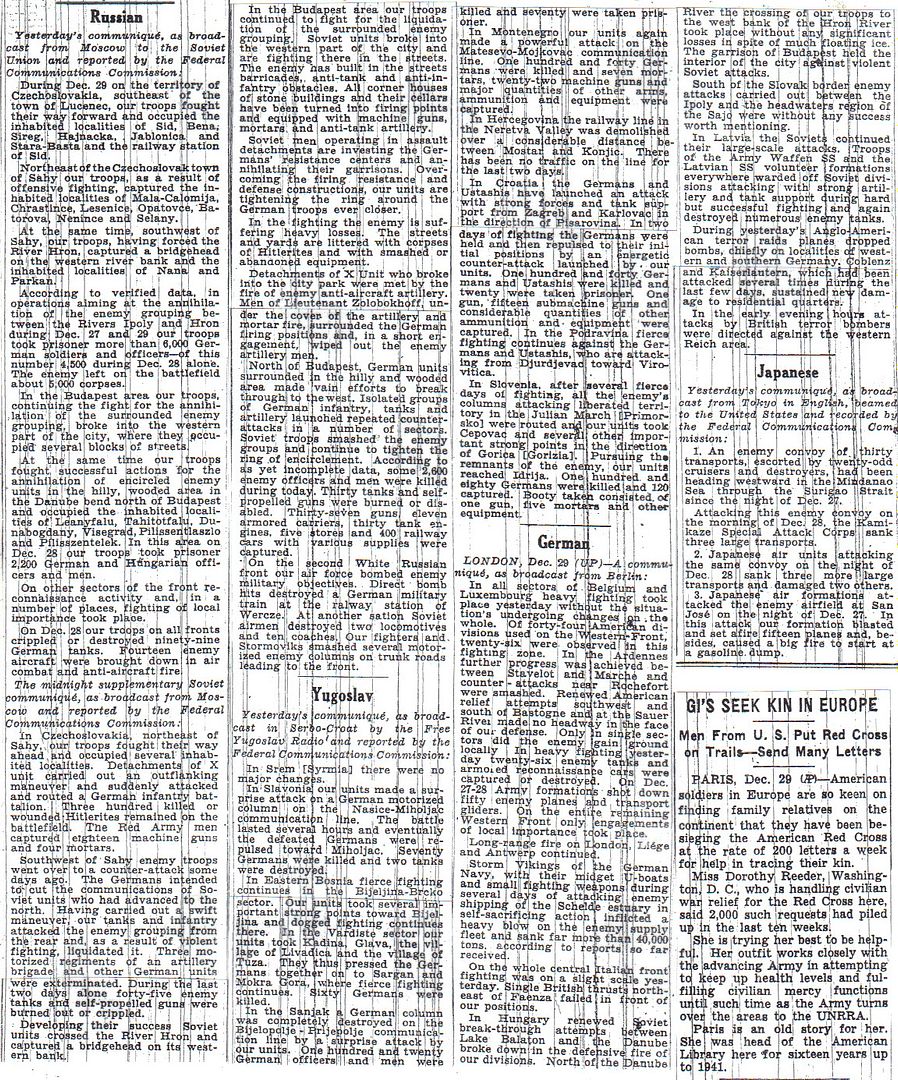
But as I’ve previously pointed out, what Monty once proposed in November made sense; to divide the front into northern and southern sectors, with the Ardennes being the dividing line. It made no sense for Bradely’s 12th AG to straddle the Ardennes and split its effort into northern attacks toward Cologne and southern attacks in Alsace. Bradley should have commanded 9th and 1st Armies in the north and Devers 3rd and 7th in the south.
But Monty made the suggestion, with the corollary that he command all the troops in the north so that idea was DOA at SHAEF. And Ike Despised Devers, so he was never going to give him greater authority in the south.
Because of personality conflicts, a sound strategic decision wasn’t made.
At IWO JIMA on the night of the 29th-30th 9 B-24’s attacked individually at 45 minute intervals with fragmentation bombs. ON the 30th 14 B-24’s dropeed 28 tons on the airfields with results being largely unobserved.
Nimitz Graybook
You have won me over to your point of view on the North-South split of armies. But you can see from today’s post that Ike had no respect at all for Devers’ opinions.
Ike successfully did to Devers what he could not do to Monty. He erased him from the history books. Ike couldn't do that to Monty because Monty was a British National Hero. Devers was a more junior commander, relegated to a backwater command that was deliberately kept a backwater command.
Anyone care to tell me how many books they've read about the operations of Devers' 6th Army Group? Anyone? Anyone? (This is where I expect to hear crickets). No, there isn't much written about 6th AG. "Riviera to the Rhine," the official history of 6th AG, was not published until 1993. All of the other official histories from the ETO (Cross Channel Attack, 1950, Breakout and Pursuit, 1961, The Siegfried Line Campaign, 1963, The Lorraine Campaign, 1950, The Battle of the Bulge, 1965, The Last Offensive, 1973), were all written when most of the major participants were still alive. In 1993, when "Riviera to the Rhine" was published, all of the participants were long dead and it had been 20 years since the most recent history had been published.
Here's another tidbit. The foreword to "The Siegfried Line Campaign" has this paragraph:
The story of the sweep from Normandy to the German frontier has been told in the already published Breakout and Pursuit. The present volume relates the experiences of the First and Ninth U.S. Armies, the First Allied Airborne Army, and those American units which fought under British and Canadian command, on the northern flank of the battle front that stretched across the face of Europe from the Netherlands to the Mediterranean. The operations of the Third U.S. Army in the center, from mid-September through mid-December, have been recounted in The Lorraine Campaign; those of the Seventh U.S. Army on the south will be told in The Riviera to the Rhine, a volume in preparation.
It says "7th Army," not "6th Army Group." Admittedly, this is a U.S. Official History series, so you would not expect them to tell the story of 1st French Army. However, 6th AG was a United States Army formation. Seems to me that it was shunned here. You have to wonder, why did it take so long to complete the last volume? Was there a deliberate suppression of the history of Devers' command?
The code word for the operation was Detachment. Nimitz sometimes refers to it in his Graybook.
Great stuff! Thanks!
The airfield was not integral to the Japanese defenses, which were a system of mutually supporting caves, bunkers, tunnels and gun emplacements. The pre-invasion bombing was ineffective in degrading these defenses.
The code word for the operation was Detachment. Nimitz sometimes refers to it in his Graybook.
It is only AFTER the assault do we learn of how well they were dug in.
I’ll have to put that on my reading list.
You have to wonder, why did it take so long to complete the last volume? Was there a deliberate suppression of the history of Devers’ command?
A couple of thoughts came to mind, it may have been suppression or lack of promotion? Because it was a combined effort neither the French or US took ownership? I don’t get the idea that Devers was a self promoter?
Ike seemed pretty strong on his broad front concept. With all the strong personalities would be better to keep them equal in success? Pushing monty, holding the others back?
Riviera to the Rhine
http://www.ibiblio.org/hyperwar/USA/USA-E-Riviera/index.html#index
Is this the reference you referred to?
The operations of the Seventh Army and the 6th Army Group constituted one of the most successful series of campaigns during World War II. Although opposed by many Allied political and military leaders from its inception and largely ignored by historians of the war, the campaign in southern France, including the ANVIL landings, the seizure of Toulon and Marseille, and the battles for the lower Rhone valley, set the stage for the more significant ventures to the north. The subsequent pursuit north up the Rhone and Saone valleys, the drive northeast of Lyon to the Belfort Gap, the difficult Vosges campaign that followed, and the ultimate conquest of Alsace were critical to Allied military fortunes on the Western Front. Perhaps the greatest contribution of the southern invasion was placing a third Allied army group--one with two army headquarters, three corps, and the equivalent of ten combat divisions--with its own independent supply lines, in northeastern France at a time when the two northern Allied army groups were stretched to the limit in almost every way. Whether a third army group could have been supported by the Atlantic ports without an exceedingly lengthy struggle is doubtful, and without such a force Bradley's 12th Army Group would have had great difficulty holding the additional frontage from the Luneville-Saverne area to the Swiss border. With the added strength of German units retreating unscathed from the Atlantic and Mediterranean, the German counterattack against the Third Army's exposed southern flank in September 1944 might have been far more effective, drastically retarding the initial Allied drive to the German border in the north. More important, Allied strength in northeastern France would have been much diluted without the forces of the 6th Army Group, and the Ardennes counteroffensive--or something similar--might have had a better chance of success or, at the very least, done more damage. In such a case the starting date for the final invasion of Germany might have been greatly delayed with unforeseen consequences.
Yes, that’s the reference.
I don’t think Ike was fostering competition or playing rivals off each other (which was one Stalin’s favorite pastimes with his generals when he wasn’t purging them). I think the broad front strategy was a result of Ike’s aversion to significant risk. He believed that by attacking exposed flanks, the Germans possesed the ability to isolate an exposed element of his army and destroy it. They had shown that ability in Russia, and the Ardennes Offensive showed they had the means. So in hindsight, Ike’s strategy was probably the correct one.
LOL, you really do need to read "Decision at Strasbourg : Ike's strategic mistake to halt the Sixth Army Group at the Rhine in 1944"
Your explanation is very satisfying, in that from the largest possible overview you've distilled the chief elements into a believable and understandable essence, one that puts nearly everything into perspective. Many thanks. (Your oft-demonstrated ability to do that is very valuable, whether you're limiting yourself to using it only here or in broader applications.)
Ike based his strategy off of his directive from the orders he recieved; his "mission statement:"
You will enter the continent of Europe and, in conjunction with the other United Nations, undertake operations aimed at the heart of Germany and the destruction of her armed forces.
Going off into the Schwarzwald didn't accomplish that mission. Ike needed to concentrate on the approaches to the Ruhr. The Germans would have to commit their armed forces to defend it, so that's where he had to undertake operations to destroy them. But I do agree that Ike did not treat Devers with the respect his position merited, and deliberately avoided taking advantage of opprtunities on that front.
OK, now I have to read "Decisions at Strasbourg".
Disclaimer: Opinions posted on Free Republic are those of the individual posters and do not necessarily represent the opinion of Free Republic or its management. All materials posted herein are protected by copyright law and the exemption for fair use of copyrighted works.